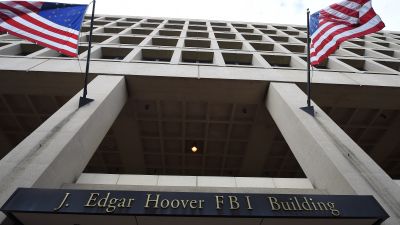
Save Our Schools Arizona holds a press conference at the state capitol in Phoenix on May 8, 2017 to announce their campaign to fight voucher expansion. (Photo by Save Our Schools Arizona)
This post first appeared at AlterNet.
In Arizona, people power just won a major victory over national dark money groups. In 90 days, more than 2,500 regular Arizona voters fanned out across the state, collecting more than 110,000 signatures to block a radical and highly controversial expansion of school vouchers pushed through by our GOP legislature and governor this spring. In a state that already ranks dead last in teacher pay and hovers just above last place for per-student spending, parents would now be able to take money out of local public schools to use toward private, home-school and religious education. With their signatures, 110,000 Arizona residents said “enough.” Another cut to public school funding would be devastating.
A month after Betsy DeVos proclaimed the controversial bill “a big win for students and parents in Arizona,” Save Our Schools went public. Our coalition of parents, teachers, business leaders, Democrats, Republicans and independents announced we were seeking to repeal the voucher expansion law known as SB 1431, and demanding that Arizona lawmakers prioritize public education. To repeal the bill and let voters determine education funding priorities in the state, we had to collect signatures from more than 75,000 voters — in just three months. And because we knew that some 25 percent of those signatures would turn out to be invalid or incorrectly registered, the number we really needed was 100,000. That meant collecting more than 1,000 signatures a day during an Arizona summer so hot that flights were being canceled.
Political insiders were quick to dismiss us. They said that the controversial law was more of the same, nothing to get hot and bothered about, and that Save Our Schools would turn out to a political blip in a state where residents are ready to walk away from their public schools. They were wrong.
Unlike school choice proponents in Arizona, who are awash in money from big donors, most of whom don’t live in Arizona, Save Our Schools would rely on volunteers, political newbies and small donations: the $30,000 that trickled in over the course of 90 days. SOS didn’t have any big names. There were no politicians or former party leaders fronting the effort. There were six women: a retiree who’d never been political beyond voting, a teacher who dabbled in volunteer work, a few moms who did campaign work as volunteers now and then if a special candidate or issue came along, and a part-time organizer who’d helped manage volunteers for other candidates’ campaigns.
The job of mass volunteer recruitment was critical. If there was a meeting or community gathering, we were there to present, looking to get another eight or nine volunteers. We reached out to existing groups from Democratic precincts to nonpolitical social groups like churches and colleges to Elks Lodges. Most importantly, we helped people feel that they were part of a movement to save and strengthen Arizona’s public schools. We made it clear that we needed action and we never left a room without getting commitments and contact information.
We were also sure to give responsibility to anyone who wanted to help, regardless of their circumstances. We had one individual who had no car. We made her the driver network point of contact. That individual ended up playing a huge role in petitions returning from all over the state, and she did it all from the comfort of her home. Shy folks were put on data entry, boisterous folks were assigned to large events where a big presence would be needed to attract voters and get them to stop and sign. No offer of help was turned down.
While simple, it worked.
We knew a good website was essential. Facebook, Twitter, Instagram, yes. But also a site we could control and treat as a digital headquarters for volunteer sign-up, donation, training and information. We recognized the importance of data. Every time someone said they’d help, we got their contact information and built a database. Throughout the campaign we would use that information to follow up, and when needed, ramp up recruiting, advertising and effort.
It wasn’t all smooth sailing. Donations were slow and small. Summer heat made long shifts in front of libraries or grocery stores arduous. With under 25 days left, and despite having 13,000 petitions out in the field, we were still far away from our goal. We started preparing ourselves for the possibility of defeat.
We ramped up the urgency. We worked harder and longer, stepping up our door-to-door canvassing. We went anywhere the people were: professional sports games, concerts, rail stops and parks. We were shameless — any candidate who was holding an event for him or herself, we asked to have 10 minutes. We piggybacked on existing events like the Pride parade and events on Fourth of July. We asked every organization that sent out regular emails to dedicate an entire email to explain to their members why Arizona’s classrooms are in crisis, and how voucher expansion will be devastating to our public schools.
We also kept our campaign in the news. We held press conferences, reaching out to every political show and asking to be on, offering to debate the biggest, baddest opponents we could think of. We used social media to celebrate every minor victory, to praise every dedicated volunteer. Our movement became most fun and exciting thing happening in Arizona — you only had to look at our social media feed to see it for yourself. We encouraged supporters to write letters to the editor. We held contests, offering prizes donated by local businesses. Why businesses? Because they understand that an educated workforce is key to the state’s future. “Undereducated workforce” is consistently cited as the top reason businesses avoid locating in Arizona.
None of these efforts required a politician’s skills or took a lot of money. What they did require was care, hard work and a belief that we can do something about Arizona’s classroom crisis.
With just a week to go, suddenly petitions started rolling in. And from every part of the state. If you’ve never heard of Bagdad, Arizona, it’s okay — neither had we. But Bagdad returned filled petitions. After dark days of stagnant returns and virtually no donations, the last couple weeks were like Christmas every day.
On Aug. 8, we delivered more than 9,000 petitions containing 111,540 signatures to Arizona’s secretary of state. More than 97 percent of them were certified as valid, meaning that we’re another step closer to letting the voters of Arizona weigh in on the controversial voucher expansion law. Our efforts worked because because people felt betrayed and were determined to do something about it. Every one of those signatures we collected represents an Arizona parent, retiree and business owner who spent 90 days in the summer heat to stand up for our schools, for our students and for the future of our state.
We also showed that people power can trump the dark money groups, like Americans for Prosperity and the American Federation for Children, that have been flooding Arizona with cash. These groups are relentless, and now that we’ve succeeded in blocking their efforts to advance their national agenda, they’ll only intensify their efforts. But this summer, the power of money paled in comparison to the power of the people. We made history, and we’re ready to do it again if needed.



